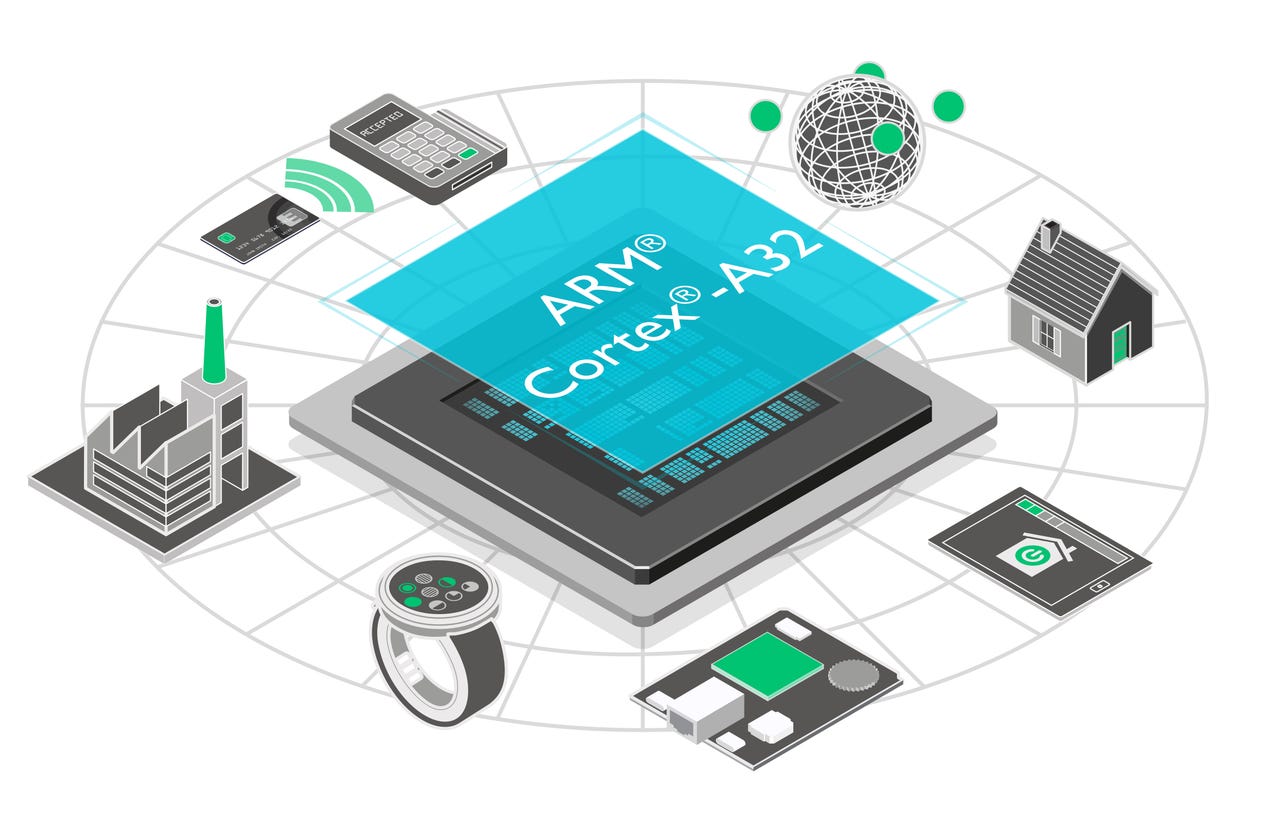ARM unveils 'ultra-efficient' Cortex-A32 processor for IoT applications


ARM's new chip is designed for use in the smallest IoT connected devices.
ARM has revealed what it is describing as an "ultra-efficient" processor for use in embedded applications and Internet of Things connected devices.
The new Cortex-A32 processor is ARM's smallest and most power-efficient core in its range, with the chip designed to be used inside products such as wearable devices, internet connected sensors, and small single-board computers.
The Cambridge, England-based company claims that the new processor brings the performance and efficiency of ARMv8-A architecture to small embedded and IoT systems.
Mobile World Congress 2016
"The Cortex-A32 processor builds on the trail blazed by the Cortex-A5 and Cortex-A7 processors in embedded applications such as single-board computing, IoT edge nodes, and wearables," said James McNiven, general manager of ARM's CPU group.
Built on the ARMv8-A architecture, the 32-bit Cortex-A32 is 25 per cent more efficient than ARM's current 32-bit core, the Cortex-A7, and the company claims that it delivers higher performance while using less power.
In its smallest configuration, the Cortex-A32 is tiny, occupying less than 0.25 mm squared of silicon area and consuming minimal power. This makes it handy for the smallest pieces of internet-connected kit such as industrial sensors and wearable devices, especially given that greater energy efficiency could improve battery life.
The Cortex-A32 is designed to be configurable in multiple ways, from single-core to quad-core, adding a level of scalability which allows it to be used for a range of Internet of Things applications.
ARM customers are seemingly excited about the processor's potential.
"IoT nodes have become increasingly diverse, with the more sophisticated nodes often requiring a rich OS," said Maarten Ectors, vice president of IoT at Canonical. "Combining Snappy Ubuntu Core and the highly-efficient processing and scalability of Cortex-A32 will enable developers to truly push the boundaries of edge devices for IoT."
Cortex-A processors are currently found in a range of applications across a number of industries, including automotives, industrial controllers, robots, and wearable devices.
It said the Cortex-A32 is equipped with ARM TrustZone technology in order to ensure the processors are as secure as possible with "banking-class trust capability".The Cortex-A processors were revealed at Embedded World 2016 in Nuremburg, Germany. At the same event, Dell touted its potential as a player in the industrial Internet of Things market.